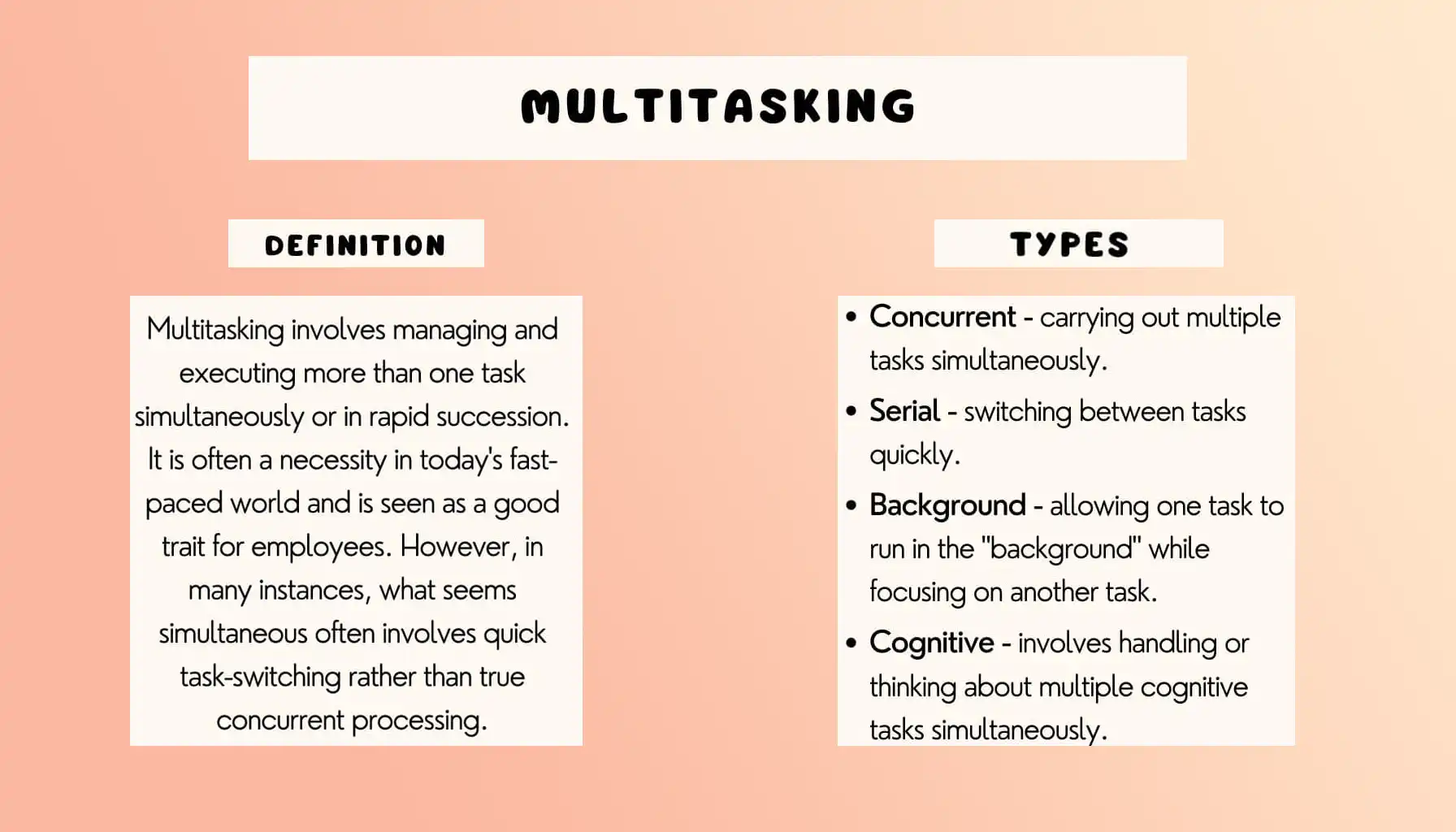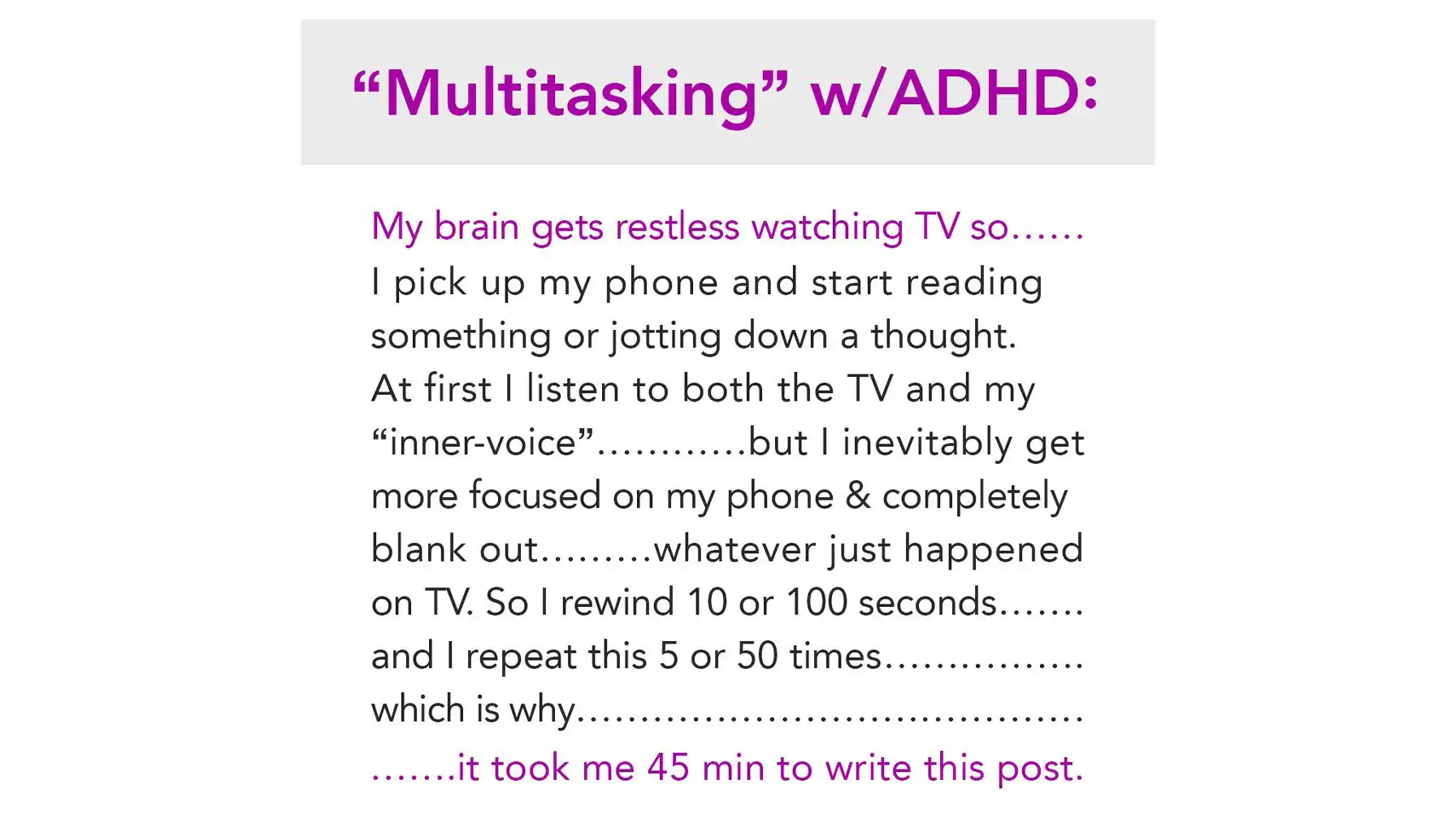The Cognitive Cost of Multitasking: Brain Scans Reveal the Truth

Contents:
Are you having lunch while answering that important call, scrolling through reels, and taking a look at some of the tasks at work? Sounds like a greatly managed cognitive multitasking! Despite its good reputation, this lifestyle can be harmful for your mental health. Is multitasking real in the end? And how does it affect our brain function?
Here we will share some of the recent multitasking cognitive performance study results and offer healthy brain training strategies for developing your mind.

What Is “Multitasking”?
At its core, the multitasking definition refers to attempting to perform two or more tasks simultaneously or switching between them rapidly. On the surface, multitasking meaning an efficient use of time. But neuroscience says otherwise. Research has shown that the brain isn’t wired to handle multiple cognitively demanding tasks in parallel. Instead, it rapidly toggles focus between them—a process called task-switching—which comes at a measurable mental cost.
Despite what we may believe, our brains are not parallel processors. Instead, they follow a serial approach to handling information. So what is multitasking at its core? Each switch from one task to another disrupts neural focus, leading to cognitive fatigue, missed information, and ultimately, reduced efficiency.
Multitasking Skills Examples
Modern multitasking doesn’t just happen at work—it’s embedded in everyday life. Here are typical scenarios where people unknowingly incur cognitive switching costs:
Switching between emails and phone calls
Managing multiple browser tabs during research or online shopping
Listening to a podcast while drafting a report
Juggling spreadsheets and Slack messages at work
Cooking dinner while following a YouTube tutorial
Each example involves constant back-and-forth between unrelated cognitive tasks—something our brains struggle to do well. These behaviors may feel productive, but they come with hidden trade-offs in attention, accuracy, and memory.

How is intelligence measured? Here is a possible answer — learn about WAIS.
Multitasking Cognitive Performance Research Results: How It Affects Your Brain
What’s actually happening inside your head during multitasking? Functional brain imaging studies, particularly functional MRI (fMRI) and electroencephalograms (EEG), have mapped how does multitasking affect the brain in real time—and the results are startling.
When you try to focus on two tasks at once, the prefrontal cortex—the area responsible for executive functions like attention, planning, and problem-solving—goes into overdrive. Instead of handling both tasks in tandem, the brain creates a processing bottleneck by queuing tasks and switching between them.
This switching isn’t seamless. Each change requires mental effort, draining cognitive resources and increasing the chance of mistakes, slower reaction times, and lower comprehension.
Key brain regions affected include:
Prefrontal cortex — overburdened by switching demands
Fronto-parietal network — the multitasking hub that struggles under pressure
Anterior cingulate cortex — involved in error detection and conflict monitoring
Research has even shown that frequent multitaskers tend to perform worse on cognitive control tasks compared to those who focus on one thing at a time. This group exhibits impaired memory, reduced attention span, and even altered brain wave patterns—a sign of heightened mental stress.
Is Multitasking Good for Mental Health?
At first glance, multitasking feels like a shortcut to productivity. But internally, it’s a chronic stressor. Research reveals that constantly dividing attention triggers elevated cortisol levels, leads to mental fatigue, and may contribute to emotional burnout. When your brain is repeatedly forced to switch tasks, it struggles to fully complete any of them—creating a loop of unfinished work, restlessness, and frustration.
Functional brain scans tell the same story. Heavy multitaskers show reduced gray matter density in the anterior cingulate cortex and insula, areas responsible for empathy, emotional regulation, and self-awareness. In simple terms, habitual multitasking may actually shrink the parts of your brain that help you stay calm, focused, and emotionally resilient.
Mental health implications include:
Increased anxiety from constant stimulation and alerts
Decreased sleep quality due to mental overstimulation
Higher risk of depression due to emotional detachment and exhaustion
The illusion of being “in control” fades quickly as mental exhaustion sets in. That’s why experts now promote monotasking—focusing on one task at a time—as a cognitive wellness strategy.
Tip: While you cannot multitask, you can train your brain. Learn how neuroplasticity works and helps us.
How Much Does Multitasking Cost Us?
Here’s a snapshot of what the science says about the tangible impact of multitasking:
Cognitive Area Affected | Impact of Multitasking |
Productivity | Up to 40% decrease due to task-switching costs |
Memory | Reduced short-term retention and poorer recall |
Focus | Increased distractibility and attention lapses |
Comprehension | Lower reading and listening understanding |
Emotional Regulation | Greater likelihood of irritability and burnout |
Connection of ADHD and Multitasking
For individuals with Attention-Deficit/Hyperactivity Disorder (ADHD), multitasking isn’t just unhelpful—it can be actively harmful. ADHD affects executive function, impulse control, and sustained attention—the exact systems needed to multitask effectively.
Brain imaging studies show that people with ADHD have heightened difficulty switching tasks efficiently. The cognitive bottleneck effect becomes more severe, leading to:
Frequent task abandonment
Increased errors
Higher frustration tolerance breakdown
Interestingly, while those with ADHD might not technically be “worse” at multitasking from a skill perspective, they tend to engage in it more frequently—often as a way to seek stimulation. Unfortunately, this tendency backfires, creating a loop of impulsive task-switching and mental overload.
For individuals with ADHD, structured monotasking—combined with tools like timers, focus blocks, and clear visual task outlines—can help restore focus and reduce stress. It’s not about working harder but working smarter with the brain’s strengths.

Do you have ADHD? Check out our article to find common signs.
Escape Multitasking with Healthy Alternatives
Instead of asking ‘how to get better at multitasking’, try completing your goals without even using it. To become more efficient cognitively, try these options in your daily routine.
Monotasking as a Lifestyle
Train yourself to focus on one task at a time. Use time blocks (Pomodoro method or similar) and eliminate distractions during that window.
Declutter Your Tech Space
Silence non-essential notifications, close extra tabs, and keep your work screen focused.
Prioritize Rest and Sleep
Mental performance begins with recovery. Good sleep helps consolidate memory and reduce cognitive fatigue.
Practice Mindfulness
Even a few minutes of meditation or breathwork each day helps reduce stress and train present-moment awareness—an antidote to the chaos of multitasking.
Use Mind Elevate to Strengthen the Brain
Multitasking weakens the brain’s executive control network over time. But cognitive training can reverse that trend by exercising memory, attention, and focus—similar to how regular workouts strengthen muscles. Mind Elevate is designed precisely with this mission in mind.
Exercises there are rooted in cognitive neuroscience and built to target the specific regions strained by task-switching:
Cognitive Domain | Mind Elevate Focus |
Attention | Games that train selective and sustained attention |
Working Memory | Tasks that improve mental retention and mental flexibility |
Processing Speed | Challenges that reduce reaction time and improve clarity |
Executive Function | Strategic puzzles and logic games for planning and focus |
Train your brain the right way with Mind Elevate, stay calm, focused, think fast and correctly. This app has everything to prepare you for cognitive work.





